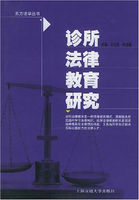27. A whole army may be robbed of its spirit;["In war," says Chang Yu, "if a spirit of anger can be made to pervade all ranks of an army at one and the same time, its onset will be irresistible. Now the spirit of the enemy's soldiers will be keenest when they have newly arrived on the scene, and it is therefore our cue not to fight at once, but to wait until their ardor and enthusiasm have worn off, and then strike. It is in this way that they may be robbed of their keen spirit." Li Ch`uan and others tell an anecdote (to be found in the TSO CHUAN, year 10, ss. 1) of Ts`ao Kuei, a protege of Duke Chuang of Lu. The latter State was attacked by Ch`i, and the duke was about to join battle at Ch`ang-cho, after the first roll of the enemy's drums, when Ts`ao said: "Not just yet." Only after their drums had beaten for the third time, did he give the word for attack. Then they fought, and the men of Ch`i were utterly defeated. Questioned afterwards by the Duke as to the meaning of his delay, Ts`ao Kuei replied: "In battle, a courageous spirit is everything. Now the first roll of the drum tends to create this spirit, but with the second it is already on the wane, and after the third it is gone altogether. I attacked when their spirit was gone and ours was at its height. Hence our victory." Wu Tzu (chap. 4) puts "spirit" first among the "four important influences" in war, and continues: "The value of a whole army--a mighty host of a million men--is dependent on one man alone: such is the influence of spirit!"]
a commander-in-chief may be robbed of his presence of mind.
[Chang Yu says: "Presence of mind is the general's most important asset. It is the quality which enables him to discipline disorder and to inspire courage into the panic-stricken." The great general Li Ching (A.D. 571-649) has a saying: "Attacking does not merely consist in assaulting walled cities or striking at an army in battle array; it must include the art of assailing the enemy's mental equilibrium."]
28. Now a solider's spirit is keenest in the morning;[Always provided, I suppose, that he has had breakfast. At the battle of the Trebia, the Romans were foolishly allowed to fight fasting, whereas Hannibal's men had breakfasted at their leisure. See Livy, XXI, liv. 8, lv. 1 and 8.]
by noonday it has begun to flag; and in the evening, his mind is bent only on returning to camp.
29. A clever general, therefore, avoids an army when its spirit is keen, but attacks it when it is sluggish and inclined to return. This is the art of studying moods.
30. Disciplined and calm, to await the appearance of disorder and hubbub amongst the enemy:--this is the art of retaining self-possession.
31. To be near the goal while the enemy is still far from it, to wait at ease while the enemy is toiling and struggling, to be well-fed while the enemy is famished:--this is the art of husbanding one's strength.
32. To refrain from intercepting an enemy whose banners are in perfect order, to refrain from attacking an army drawn up in calm and confident array:--this is the art of studying circumstances.
33. It is a military axiom not to advance uphill against the enemy, nor to oppose him when he comes downhill.
34. Do not pursue an enemy who simulates flight; do not attack soldiers whose temper is keen.
35. Do not swallow bait offered by the enemy.
[Li Ch`uan and Tu Mu, with extraordinary inability to see a metaphor, take these words quite literally of food and drink that have been poisoned by the enemy. Ch`en Hao and Chang Yu carefully point out that the saying has a wider application.]
Do not interfere with an army that is returning home.
[The commentators explain this rather singular piece of advice by saying that a man whose heart is set on returning home will fight to the death against any attempt to bar his way, and is therefore too dangerous an opponent to be tackled. Chang Yu quotes the words of Han Hsin: "Invincible is the soldier who hath his desire and returneth homewards." A marvelous tale is told of Ts`ao Ts`ao's courage and resource in ch. 1 of the SANKUO CHI: In 198 A.D., he was besieging Chang Hsiu in Jang, when Liu Piao sent reinforcements with a view to cutting off Ts`ao's retreat. The latter was obligbed to draw off his troops, only to find himself hemmed in between two enemies, who were guarding each outlet of a narrow pass in which he had engaged himself. In this desperate plight Ts`ao waited until nightfall, when he bored a tunnel into the mountain side and laid an ambush in it. As soon as the whole army had passed by, the hidden troops fell on his rear, while Ts`ao himself turned and met his pursuers in front, so that they were thrown into confusion and annihilated.
Ts`ao Ts`ao said afterwards: "The brigands tried to check my army in its retreat and brought me to battle in a desperate position: hence I knew how to overcome them."]
36. When you surround an army, leave an outlet free.
[This does not mean that the enemy is to be allowed to escape. The object, as Tu Mu puts it, is "to make him believe that there is a road to safety, and thus prevent his fighting with the courage of despair." Tu Mu adds pleasantly: "After that, you may crush him."]
Do not press a desperate foe too hard.
[Ch`en Hao quotes the saying: "Birds and beasts when brought to bay will use their claws and teeth." Chang Yu says:















